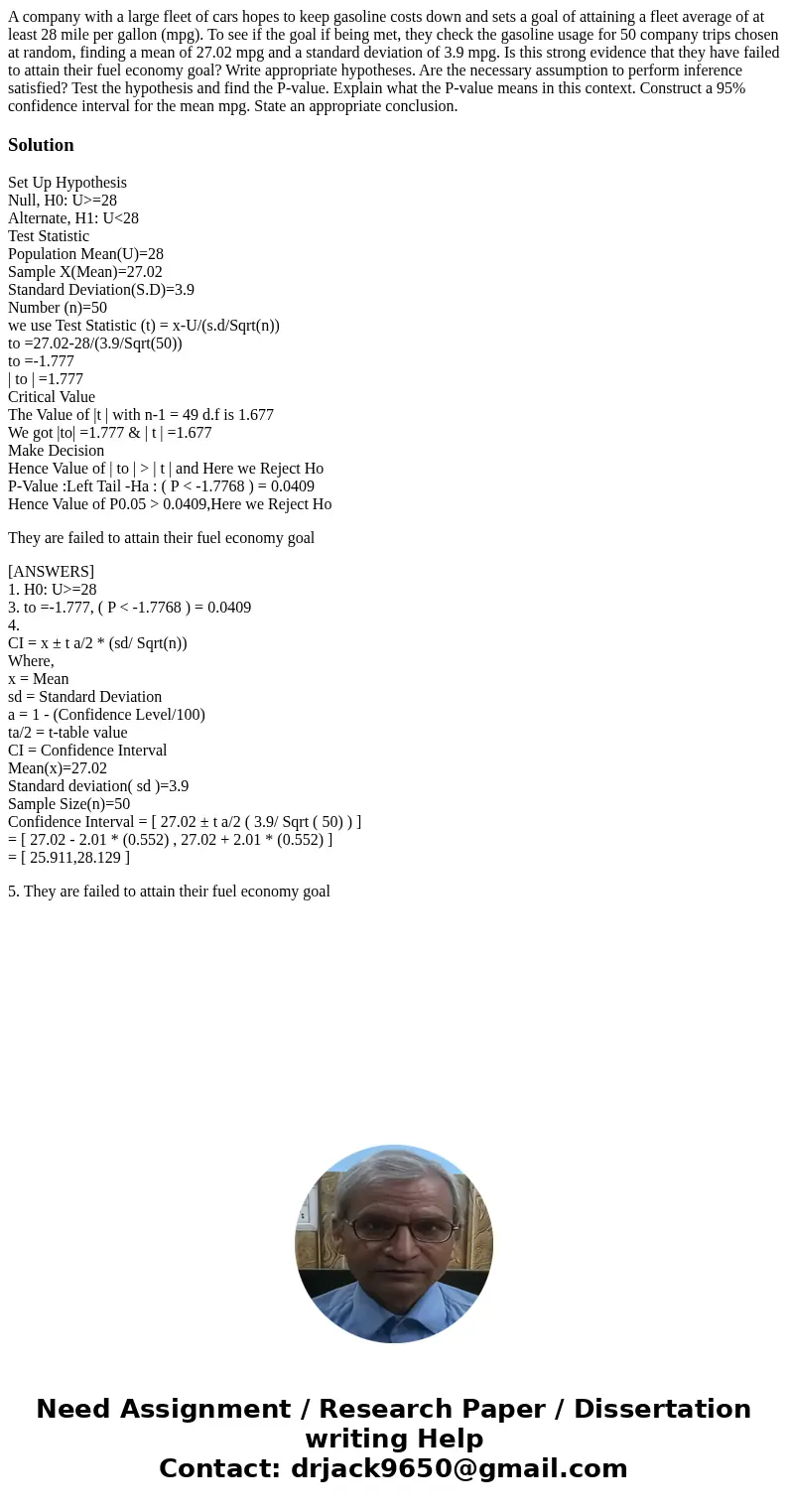A company with a large fleet of cars hopes to keep gasoline
Solution
Set Up Hypothesis
Null, H0: U>=28
Alternate, H1: U<28
Test Statistic
Population Mean(U)=28
Sample X(Mean)=27.02
Standard Deviation(S.D)=3.9
Number (n)=50
we use Test Statistic (t) = x-U/(s.d/Sqrt(n))
to =27.02-28/(3.9/Sqrt(50))
to =-1.777
| to | =1.777
Critical Value
The Value of |t | with n-1 = 49 d.f is 1.677
We got |to| =1.777 & | t | =1.677
Make Decision
Hence Value of | to | > | t | and Here we Reject Ho
P-Value :Left Tail -Ha : ( P < -1.7768 ) = 0.0409
Hence Value of P0.05 > 0.0409,Here we Reject Ho
They are failed to attain their fuel economy goal
[ANSWERS]
1. H0: U>=28
3. to =-1.777, ( P < -1.7768 ) = 0.0409
4.
CI = x ± t a/2 * (sd/ Sqrt(n))
Where,
x = Mean
sd = Standard Deviation
a = 1 - (Confidence Level/100)
ta/2 = t-table value
CI = Confidence Interval
Mean(x)=27.02
Standard deviation( sd )=3.9
Sample Size(n)=50
Confidence Interval = [ 27.02 ± t a/2 ( 3.9/ Sqrt ( 50) ) ]
= [ 27.02 - 2.01 * (0.552) , 27.02 + 2.01 * (0.552) ]
= [ 25.911,28.129 ]
5. They are failed to attain their fuel economy goal

 Homework Sourse
Homework Sourse